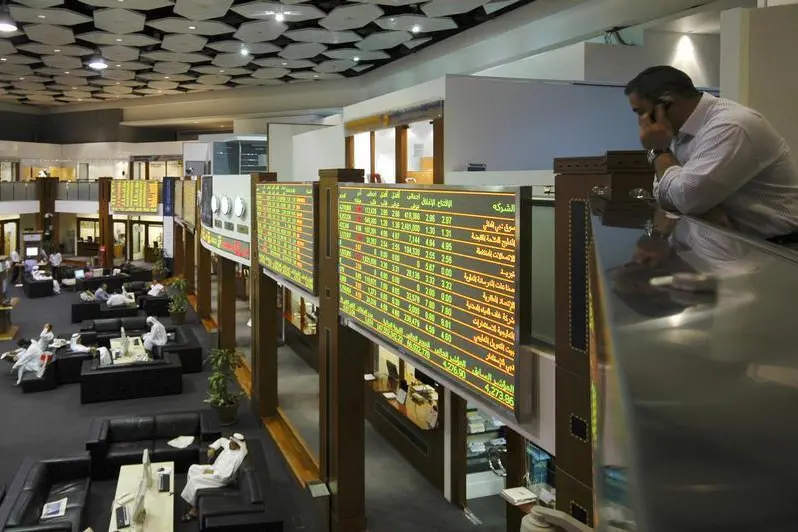PHOTO
Most bourses in the Gulf rebounded on Thursday, enjoying a respite from their recent sell-off, as investors digest the U.S. Federal Reserve's firm hawkish stance on taming inflationary pressures.
The Fed's June meeting minutes showed officials rallied around an outsized rate hike, justifying the 0.75-percentage-point increase as near-term inflation outlook had deteriorated since their meeting in May.
Dubai's benchmark index advanced 1.5%, buoyed by a 5.1% jump in blue-chip developer Emaar Properties and a 1.5% gain in sharia-compliant lender Dubai Islamic Bank. The Dubai bourse rebounded after a series of price corrections as traders reacted to a global sentiment shift after Wednesday's Federal Reserve minutes, said Farah Mourad, senior market analyst of XTB MENA. "The market could see further price increases over the short term before returning to the downside."
Dubai road-toll operator Salik has appointed Ibrahim Al Haddad as chief executive officer, it said on Wednesday, in a move that showed the company was moving closer to its planned flotation. Dubai's deputy ruler, Sheikh Maktoum Bin Mohammed, announced plans in November to turn Salik, then a division of the Roads and Transport Authority (RTA), into a public company. Listing it and nine other government-linked entities was intended to boost stock market activity.
The Qatari benchmark added 0.2%, helped by a 2.3% rise in Commercial Bank. On the other hand, Qatar National Bank (QNB), the Gulf's largest lender by assets, fell 1.5%, despite reporting a 12.3% increase in second-quarter profit.
In Abu Dhabi, the equities fell 0.3%, hit by a 1.4% fall in the United Arab Emirates' biggest lender First Abu Dhabi Bank. Egypt's blue-chip index gained 1%, led by a 2.3% gain in top lender Commercial International Bank. The index is down more than 25% so far this year, having tumbled 3.6% to 8,642 on Monday, its lowest since November 2016.
Egypt has come under financial pressure because of a sharp slide in foreign portfolio investor holdings and rising costs for key commodity imports, especially since Russia's invasion of Ukraine. Headline inflation accelerated to 13.5% in May.
(Reporting by Ateeq Shariff in Bengaluru; Editing by Krishna Chandra Eluri)




















